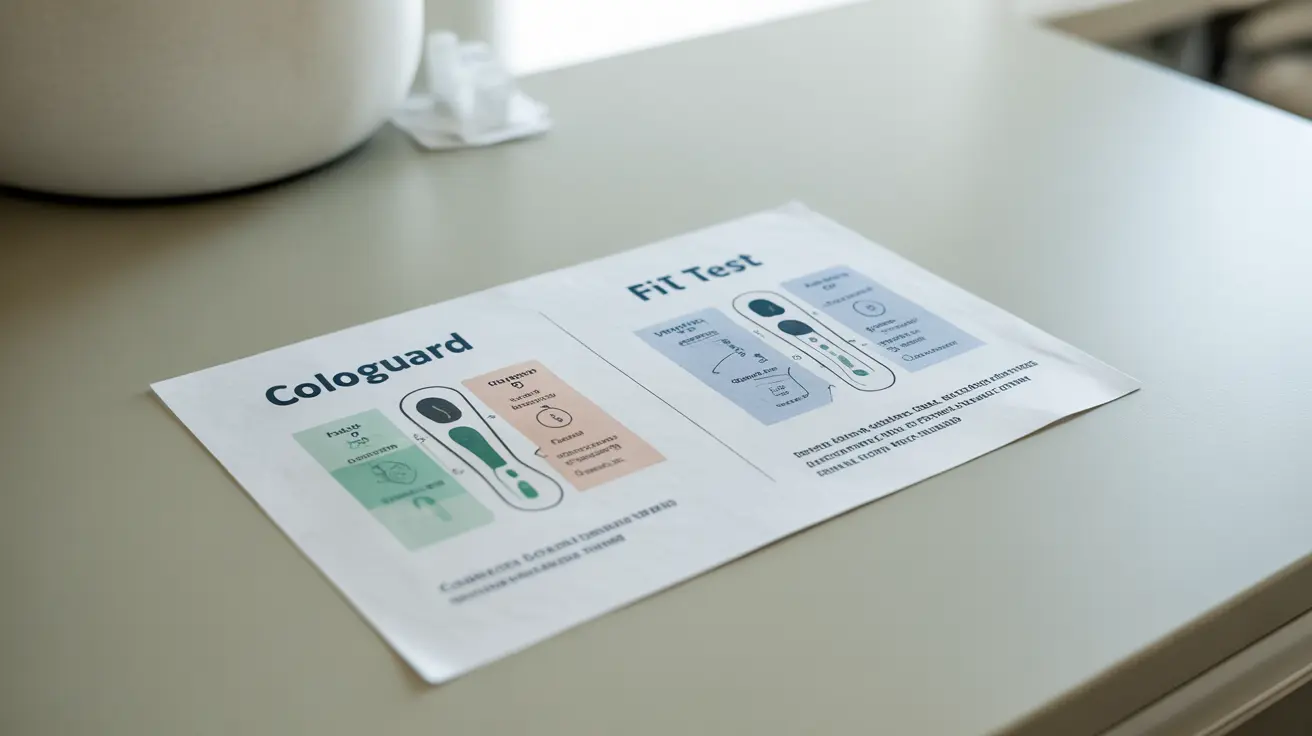With the growing availability of at-home health screening options, many people are exploring alternatives to traditional colonoscopies for colorectal cancer detection. While Cologuard has become a well-known name in this space, several other screening tests offer different approaches to detecting potential signs of colon cancer.
Understanding the differences between these screening options can help you make an informed decision about which test might be right for you. Let's explore how Cologuard compares to other available tests and what you should know about each option.
Understanding Different At-Home Screening Options
Several types of at-home colorectal cancer screening tests are available on the market today. Each uses different methods to detect potential signs of cancer or precancerous conditions.
FIT (Fecal Immunochemical Test)
FIT tests specifically detect hidden blood in the stool, which can be an early sign of colorectal cancer. These tests are typically done annually and are known for their simplicity and cost-effectiveness.
Cologuard
Cologuard combines FIT technology with DNA testing to detect both blood and abnormal DNA that might indicate the presence of cancer or precancerous polyps. This test is generally recommended every three years for eligible patients.
Other Home Testing Options
Companies like Everlywell and LetsGetChecked offer their versions of FIT tests, providing convenient at-home collection with laboratory analysis. These tests typically focus on detecting occult blood in the stool.
Test Accuracy and Reliability
Different screening methods offer varying levels of accuracy in detecting colorectal cancer and precancerous polyps. While no at-home test is as comprehensive as a colonoscopy, each has its own detection rates:
FIT Test Accuracy
FIT tests are particularly effective at detecting actual cancer, with sensitivity rates around 79% for cancer detection. However, they are less effective at finding precancerous polyps.
Cologuard Accuracy
Cologuard shows higher sensitivity rates for both cancer (92%) and advanced precancerous lesions (42%) compared to standard FIT tests, though it also has a higher false-positive rate.
Cost Considerations and Insurance Coverage
The financial aspect of screening tests can significantly influence your choice:
- Most insurance plans cover Cologuard every three years
- FIT tests are typically covered annually
- Alternative home testing options often offer direct-to-consumer pricing
- Out-of-pocket costs vary significantly between testing methods
Screening Frequency and Follow-Up
Understanding how often to screen and what to do with results is crucial:
- FIT tests: Annually
- Cologuard: Every three years
- Alternative home tests: Typically annually
- Positive results require follow-up colonoscopy
Frequently Asked Questions
What is the difference between Cologuard and other at-home colon cancer screening tests like FIT, Everlywell, and LetsGetChecked?
Cologuard uses both DNA and blood detection technology, while FIT tests (including those from Everlywell and LetsGetChecked) only detect hidden blood in the stool. This makes Cologuard more comprehensive but also more expensive and less frequent.
How accurate is Cologuard compared to FIT and other at-home colon cancer tests for detecting cancer and precancerous polyps?
Cologuard has a higher sensitivity rate (92%) for detecting cancer compared to FIT tests (79%). It's also better at detecting precancerous polyps, though neither option matches the accuracy of a colonoscopy.
Is Cologuard covered by insurance, and how does the cost compare to other at-home colon cancer screening options?
Cologuard is covered by most insurance plans, including Medicare, every three years. FIT tests are typically less expensive and covered annually. Other at-home tests vary in price and may not be covered by insurance.
What are the pros and cons of choosing an at-home test like Cologuard versus a traditional colonoscopy for colorectal cancer screening?
At-home tests offer convenience and non-invasiveness but are less comprehensive than colonoscopy. Colonoscopy remains the gold standard as it can both detect and remove polyps in one procedure, though it requires preparation and sedation.
How often do I need to repeat Cologuard or other at-home colon cancer tests, and what should I do if I get a positive result?
Cologuard should be repeated every three years, while FIT tests are done annually. If any at-home test returns positive results, you should follow up with your healthcare provider for a diagnostic colonoscopy.




